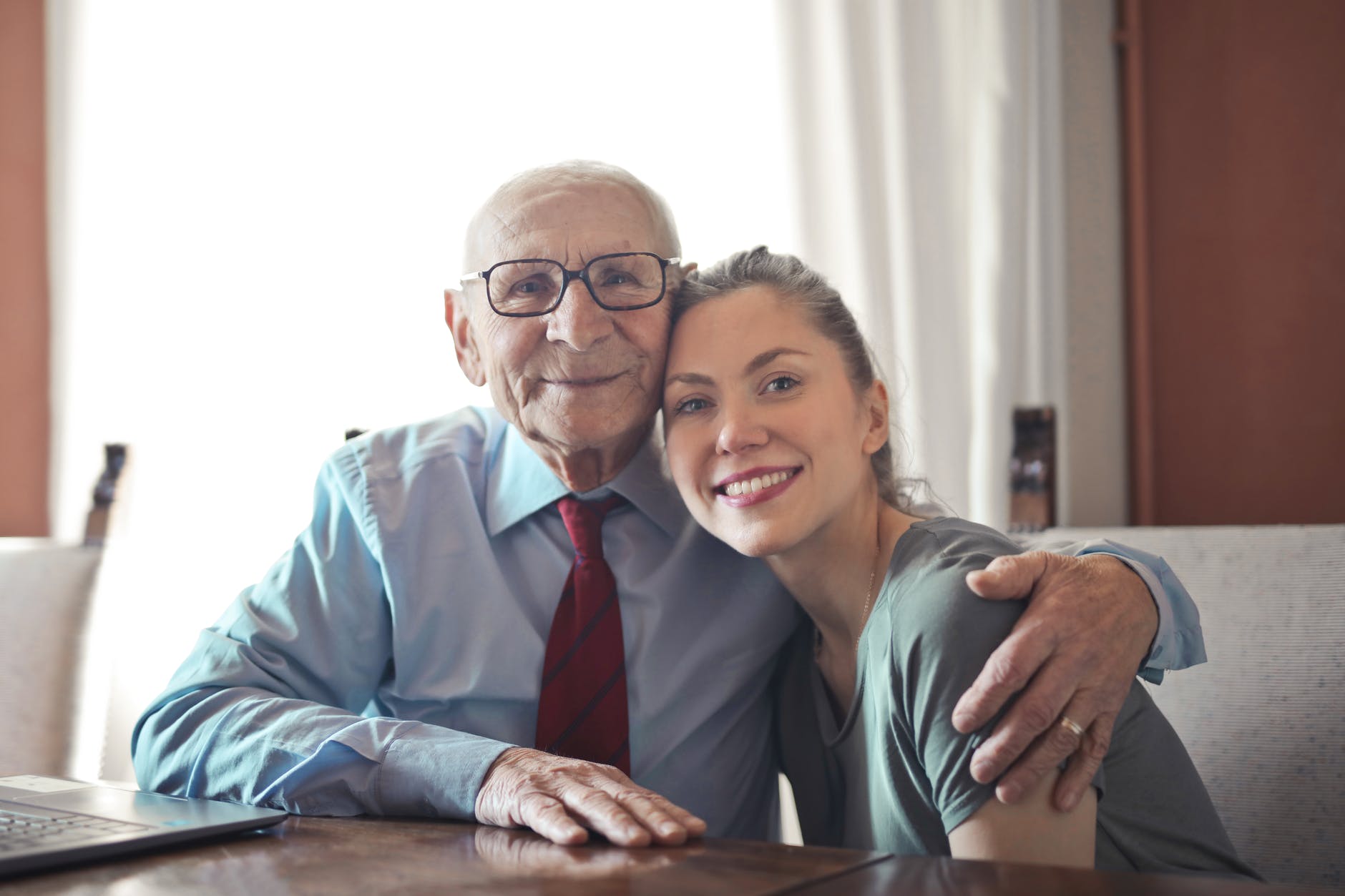
Caregiver Support Groups
According to the AARP, caregivers – especially those who are taking care of their loved ones and are not paid for their work – are more likely to experience financial, physical, or emotional difficulties because of the increased amount of stress. If you are a caregiver struggling with similar issues, support groups can offer a great place for exercising self-care and alleviating stress. In this article, we hope to provide you with the information necessary for finding the right support group that fits your needs.
What are caregiver support groups?
Caregiver support groups allow you to ask questions about caregiving, share experiences, learn about the job, and exchange emotional support in a safe environment. They can also lead you to become more confident when it comes to caring for your loved one and any challenges that caregiving comes with.
There are a range of caregiver support groups to choose from. Some are online and others offer in-person meetings. Though they all aim to create a network that assists you in caring for your loved ones, some have specific themes they cover or illnesses that they are geared towards.
Types of support groups
There are several types of support groups that can help you with everyday caregiving challenges. However, it is important to find the one that works best for your situation and needs. Types of support groups include:
- Professional-led groups where people trained in counseling or social work facilitate the meetings
- Peer-led groups where the members are in charge of the way the group operates
- Informational support groups aimed at providing knowledge to caregivers who are taking care of a loved one with a specific terminal illness. This type of a support group often incorporates events where doctors or others in the field are invited as speakers.
Support groups are also divided into in-person and online categories. If you are unable to leave the house for long periods of time or do not feel comfortable speaking with people face to face, then online support groups can be a great option. These groups may involve electronic mailing lists, discussion groups, bulletin or message boards, chat rooms, or Zoom meetings.
Why should you join a support group?
In 2020 and in the U.S. alone, 53 million adults provided unpaid care to their loved one, according to the National Alliance for Caregiving. Along these numbers were reports of a common phenomenon called caregiver stress. As a caregiver, you know that the amount of minute and larger responsibilities can pile up and create a lot of pressure. Not only does this heighten caregivers’ risk of illnesses related to aging, it also can cause anxiety, depression and other mental health issues.
These are just some of the reasons why you should consider joining a support group. As a caregiver, it is imperative for you to care for yourself first so that you can then be there for your elderly loved one. Attending regular meetings can be extremely helpful.
Online caregiver support groups
There are numerous support groups out there that you can find and join. Here are some of the online caregiver support groups that may fit your needs:
Working Daughter
This is a support group that takes place on Facebook for working daughters who are taking care of their elderly parents or other loved ones. Liz O’Donnell founded the Working Daughter support group in 2015, when she realized that caregivers with a part-time or a full-time job needed some form of emotional assistance to overcome the amount of stress caregiving can burden you with. Juggling career, care, and perhaps a family of your own can be exhausting, so O’Donnell started the Working Daughter group to be a place to get advice and support.
O’Donnell has also written a book called, Working Daughter: A Guide to Caring for Your Aging Parents While Earning a Living, and has been focusing on helping and giving practical advice to caregivers who are trying to balance their own families, jobs, and caregiving duties.
This private group operates on Facebook and there is no fee for joining or connecting with other caregivers. All you have to do is sign up. If you are a woman who is attempting to take on both professional and caregiving responsibilities at the same time, this support group may be perfect for you.
The Caregiver Action Network (CAN)
The Caregiver Action Network is a U.S. non-profit that helps different types of caregivers. They offer assistance to caregivers looking after their terminally ill parents, wounded veterans, and more. Regardless of what your loved one is struggling with, the CAN will be able to support you in one way or another.
CAN is a nationwide network that offers you a place in a large community of caregivers that can provide you with education and peer support for completely free. In addition, you can chat, email or telephone the CAN help desk for free. They will answer any questions about finding local support groups, dealing with everyday issues that concern caregiving, or the organization itself.
The Caregiver Action Network has several social media pages you can follow, forums to chat with others in a similar place as you, blogs where people share their stories, and a myriad of online resources. This network can also provide you with a list of local volunteers – those who are also experienced in caregiving duties – who can inform you about different medical conditions and advocacy related to them.
Cancer caregiver support groups
CancerCare partners with Brain Tumor Foundation and Novocure to offer caregivers who are taking care of a loved one with brain tumors or brain metastasis access to a 15-week online support group program. This program is led by an oncology social worker and allows caregivers to share their hardships with each other, helping participants cope and find helpful resources.
CancerCare
The support group aims to provide participants with practical information and resources for treatment, fight anxiety or other psychological issues, find new coping methods, teach caregivers how to communicate with their loved ones, and provide hope and empowerment.
Their online support groups happen through message boards that are password-protected and are all led by professionals who guide and support caregivers. All you have to do to join is complete a registration process that can take up to 3 days. The groups are open 24 hours a day and anyone in the United States, Puerto Rico, or other U.S. territories can post on the message boards.
CancerCare also offers in-person or live conferencing support groups to those living in New York or New Jersey. There are plenty of other support group programs that you can find here.
Mesothelioma
If you are looking for caregiver support groups for Mesothelioma, click here: Mesothelioma Guide
Alzheimer’s caregiver support groups
If you are caring for a loved one with Alzheimer’s or other form of dementia, there are support groups specifically aimed at helping you:
The Alzheimer’s Foundation of America (AFA)
The AFA offers those caring for elderly with dementia a great opportunity to connect through support groups. They focus on educational and supportive services nationwide and the entire foundation was actually founded by a caregiver. Because finding time for self-care is such an issue for caregivers, the AFA provides a national, toll-free helpline where you can speak with social workers and other professionals trained to help caregivers.
Licensed social workers also facilitate weekly telephone support groups free of charge. This is a rare opportunity to speak with professionals while also connecting with other caregivers.
The Alzheimer’s Association’s in-person support groups
Though some caregivers prefer meeting online, you may wish to meet with your support group face to face. There are some aspects of in-person support – such as human touch – that online meetings cannot provide. You can always do a google search for caregiver support groups in your local area but if you are specifically looking for support groups that are aimed at those caring for elderly loved ones with dementia, then the Alzheimer’s Association can be a great organization to turn to.
They offer several free of charge support group programs across the U.S. that are run by trained facilitators. On the Alzheimer’s Association website, you can enter your geographic location and find a support group near you that has meetings face-to-face.
Stroke caregiver support groups
If you are looking for a support group for stroke caregivers, you can visit the St. Mary’s Medical Center website.
St. Mary’s Medical Center
For those of you who are caring for stroke survivors, the St. Mary’s Medical Center provides resources for finding support groups near you. These support groups are led by stroke survivors and aim to provide emotional assistance for caregivers and their loved ones.
After loved ones experience a stroke, their and their family’s lives can change dramatically. This can be extremely stressful for caregivers, but support groups can help. They enable you to share experiences and obtain advice on topics such as diabetes education, psychological behaviors, memory loss, stroke recovery, exercise, mobility, support from other survivors, modifiable risk factors, healthy eating, and emergency preparedness.
How to find caregiver support groups
The most important aspect of finding caregiver support groups is making sure that the organization facilitating the group is legitimate. They should be working with experts in the field of caregiving and/or the illness they are focusing on. Research the organization and see how long it has been established, who the facilitators are, and what sort of training or services they offer.
Additionally, make sure to think and decide which type of a support group works best for you. You can choose between online forums, in-person meetings, social media groups, or other formats.
Conclusion
Caring for an elderly loved one can be extremely challenging and it’s important that you make time for yourself and have a safe space for sharing your experiences. Ultimately, we hope that this article will help you find a support group that offers valid information and emotional support.
Sources:
- Caregiving in the United States 2020, AARP, www.aarp.org
- Support Groups, Alzheimer’s Association, www.alz.org
- Support Groups, CancerCare, www.cancercare.org
Related Articles

Elder Law Attorneys: A Comprehensive Guide
If you are someone who is taking care of a senior or has an elderly loved one, you should consider working with an elder law attorney. Though you may not expect it, individuals begin to face new and more complex legal concerns as they get older. Actions that may have seemed trivial when they were […]

When Is It Time for Assisted Living?
Wondering if it is time for assisted living for your loved one is a common question for caregivers. As a caregiver, you might have been considering the question for months or possibly even years. Your loved one might have declined to continue the discussion as the thought of moving out of their family home and […]

Respite Care: An Overview
Caregiving can be overwhelming at times. That’s why taking a break is essential for recharging your battery. Respite care, also called short break care, is a way for caregivers to get temporary care for their loved ones so they can take some time to rest. Getting this “me time” of respite care can renew the […]

A Caregiver’s Guide to ADLs and IADLs
This article has been medically reviewed by Dr. Martin Duggan in 2021. This content is not intended to be a substitute for professional medical advice, diagnosis, or treatment. Always seek the advice of your physician or another qualified health provider with any questions you may have regarding a medical condition. As a family caregiver, your […]

What is a Mechanical Soft Diet? Explanation, Preparation, and Meal Ideas
This article has been medically reviewed by Dr. Martin Duggan in 2021. This content is not intended to be a substitute for professional medical advice, diagnosis, or treatment. Always seek the advice of your physician or another qualified health provider with any questions you may have regarding a medical condition. As a caregiver, you may […]

Intestate Succession—Dying Without a Will
This article has been reviewed by a practicing attorney in 2020 This content is not intended to be a substitute for professional legal advice. Always seek the advice of an attorney or another qualified legal professional with any questions you may have regarding your situation. Death can be an uncomfortable topic. It is one many […]